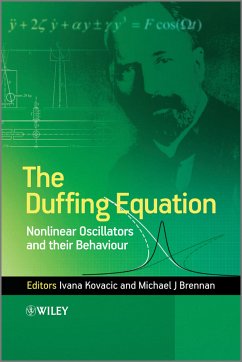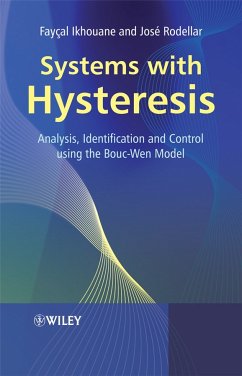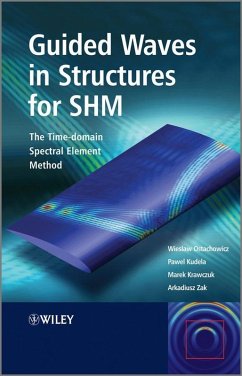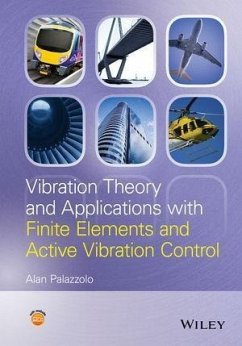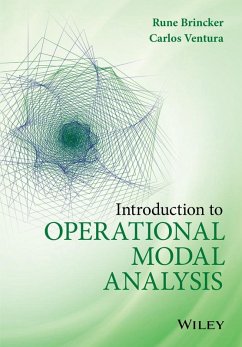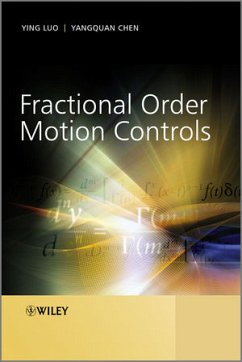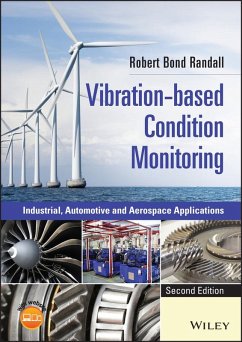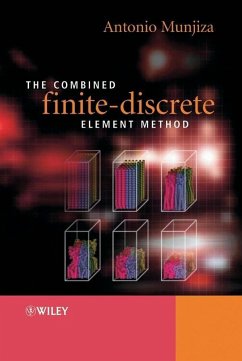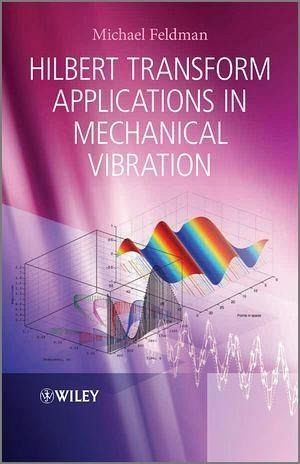
Hilbert Transform Applications in Mechanical Vibration (eBook, PDF)
Versandkostenfrei!
Sofort per Download lieferbar
114,99 €
inkl. MwSt.
Weitere Ausgaben:

PAYBACK Punkte
0 °P sammeln!
Hilbert Transform Applications in Mechanical Vibration addresses recent advances in theory and applications of the Hilbert transform to vibration engineering, enabling laboratory dynamic tests to be performed more rapidly and accurately. The author integrates important pioneering developments in signal processing and mathematical models with typical properties of mechanical dynamic constructions such as resonance, nonlinear stiffness and damping. A comprehensive account of the main applications is provided, covering dynamic testing and the extraction of the modal parameters of nonlinear vibrat...
Hilbert Transform Applications in Mechanical Vibration addresses recent advances in theory and applications of the Hilbert transform to vibration engineering, enabling laboratory dynamic tests to be performed more rapidly and accurately. The author integrates important pioneering developments in signal processing and mathematical models with typical properties of mechanical dynamic constructions such as resonance, nonlinear stiffness and damping. A comprehensive account of the main applications is provided, covering dynamic testing and the extraction of the modal parameters of nonlinear vibration systems, including the initial elastic and damping force characteristics. This unique merger of technical properties and digital signal processing allows the instant solution of a variety of engineering problems and the in-depth exploration of the physics of vibration by analysis, identification and simulation. This book will appeal to both professionals and students working in mechanical, aerospace, and civil engineering, as well as naval architecture, biomechanics, robotics, and mechatronics. Hilbert Transform Applications in Mechanical Vibration employs modern applications of the Hilbert transform time domain methods including: * The Hilbert Vibration Decomposition method for adaptive separation of a multi-component non-stationary vibration signal into simple quasi-harmonic components; this method is characterized by high frequency resolution, which provides a comprehensive account of the case of amplitude and frequency modulated vibration analysis. * The FREEVIB and FORCEVIB main applications, covering dynamic testing and extraction of the modal parameters of nonlinear vibration systems including the initial elastic and damping force characteristics under free and forced vibration regimes. Identification methods contribute to efficient and accurate testing of vibration systems, avoiding effort-consuming measurement and analysis. * Precise identification of nonlinear and asymmetric systems considering high frequency harmonics on the base of the congruent envelope and congruent frequency. * Accompanied by a website at www.wiley.com/go/feldman, housing MATLAB®/ SIMULINK codes.
Dieser Download kann aus rechtlichen Gründen nur mit Rechnungsadresse in D ausgeliefert werden.





